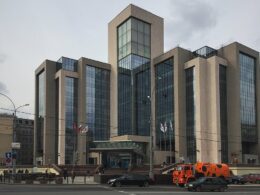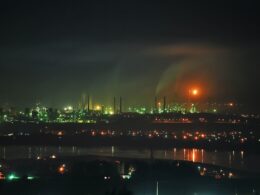Russian oil giant Lukoil announced Monday it will sell its international assets after US sanctions targeted the company and Rosneft, Moscow’s two largest oil producers. The measures freeze all US assets of the companies and bar American firms from dealing with them.
The new sanctions marked a major escalation in Western efforts to cut Moscow’s energy revenue and weaken its war economy. Lukoil’s divestment shows the immediate financial impact of these measures, as the company moves to offload overseas holdings while trying to maintain stable operations at home.
Lukoil said the bidding process for its international assets has already begun. The divestment will be conducted under a US Treasury wind-down license, with the option to extend to ensure uninterrupted operations.
Among its largest foreign holdings is a 75% stake in Iraq’s West Qurna 2 oil field, which produced more than 480,000 barrels per day earlier this year. The company also owns Bulgaria’s Neftohim Burgas refinery, Romania’s Petrotel refinery, and supplies oil to Hungary, Slovakia, and Türkiye’s STAR refinery.
The sanctions come as US President Donald Trump rolled out the first major US restrictions on Russia’s energy sector since taking office in January.
Britain followed with parallel measures, also targeting dozens of shadow fleet tankers accused of helping Moscow evade previous export limits.
Lukoil and Rosneft together account for roughly 55% of Russia’s oil output. Washington has given foreign firms doing business with them one month to cut ties or face secondary sanctions, potentially blocking access to US banks, traders, shippers, and insurers.
Despite the divestment, Lukoil emphasized its commitment to “stable operations” during the transition, producing about 2% of the world’s oil.





